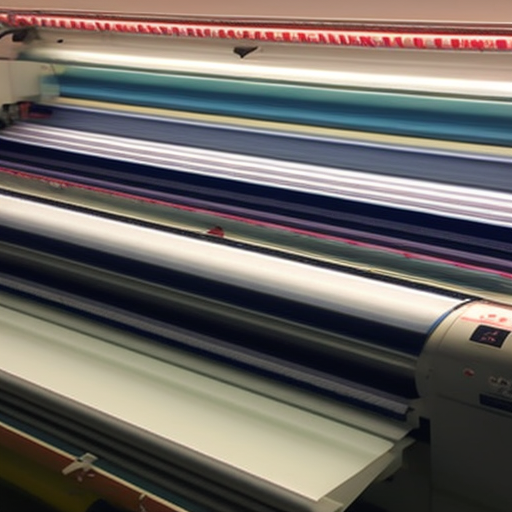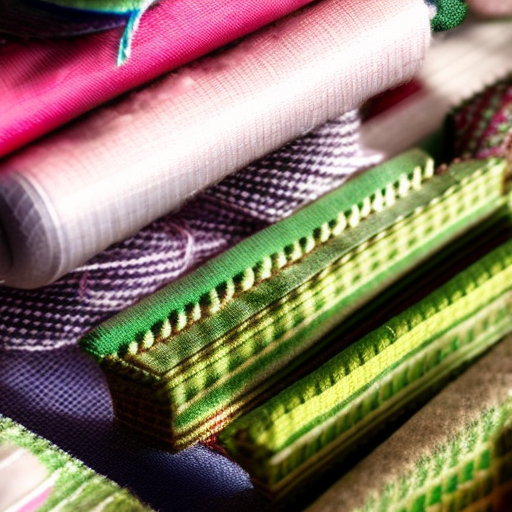
Fabric is an essential material in our daily lives, used extensively in clothing, upholstery, and other textiles. But have you ever wondered where fabric is manufactured?
Global Fabric Manufacturing
Fabric manufacturing is a global industry with production taking place in various countries around the world. The leading fabric manufacturing countries include:
- China: China is the largest fabric producer in the world, known for its vast textile industry. It has well-established manufacturing hubs and produces a wide range of fabrics.
- India: India has a rich history of textile production and is the second-largest fabric manufacturing country. It specializes in cotton, silk, and wool fabrics.
- United States: The United States has a significant textile industry, particularly in states like North Carolina and South Carolina. It produces a wide variety of fabrics, including denim and advanced technical textiles.
- Germany: Germany is known for its high-quality fabric manufacturing. It specializes in technical textiles, automotive fabrics, and luxury textiles.
- Italy: Italy is renowned for its high-end fashion and textile industry. It produces luxury fabrics, such as silk, wool, and high-quality cotton.
The Role of Developing Countries
In addition to the above countries, several developing nations are becoming significant players in fabric manufacturing. These include:
- Bangladesh: Bangladesh has emerged as a major producer of readymade garments and fabrics. Its low labor costs and large textile workforce have contributed to its growth.
- Vietnam: Vietnam’s textile industry has witnessed rapid expansion, attracting international brands due to its competitive pricing and skilled labor force.
- Turkey: Turkey is known for its high-quality textile production. It specializes in home textiles, denim, and knitwear.
- Pakistan: Pakistan is a significant fabric manufacturer, particularly in cotton and cotton-blend textiles. Its textile industry is a major contributor to the country’s economy.
These developing countries often offer lower production costs and have skilled artisans, making them attractive destinations for fabric manufacturing.
Impact on the Economy
Fabric manufacturing plays a vital role in the economies of many countries. It creates employment opportunities, stimulates local businesses, and contributes to export earnings. For instance, China’s textile industry employs millions of workers and generates billions of dollars in revenue annually.
Moreover, fabric manufacturing clusters often lead to the growth of associated industries, such as dyeing, printing, and finishing. These industries create a significant value chain that fuels economic development in the regions.
Quality Control and Sustainability
In fabric manufacturing, quality control and sustainability are essential considerations. Manufacturers adhere to strict industry standards and regulations to ensure the fabric’s durability, safety, and environmental impact.
International organizations, such as the Global Organic Textile Standard (GOTS) and the Better Cotton Initiative (BCI), promote sustainable fabric manufacturing practices. These initiatives emphasize organic, eco-friendly, and socially responsible production methods.
Conclusion
Fabric manufacturing is a global industry, with countries like China, India, the United States, and Germany leading the way. Developing nations like Bangladesh, Vietnam, Turkey, and Pakistan also play significant roles in fabric production. The industry contributes to local economies, generates employment, and drives associated industries.
As consumers, being aware of where fabric is manufactured and embracing sustainable options can further support ethical practices in the industry and help us make informed choices about the fabrics we use and wear.
Remember, the next time you reach for that comfortable shirt or relax on a plush sofa, consider the global journey that fabric has undertaken to reach your hands.





I’m so curious to find out!
Tine Piper: Me too – sounds fascinating!
Fabric is one of the most important materials used in production and manufacturing, and finding out where it’s made is an intriguing topic. It could shed light on the global production landscape, as well as reveal where advanced technologies and automation are being used in the production process. There could be a wealth of knowledge to discover in this exploration!
Absolutely – can’t wait to find out more!